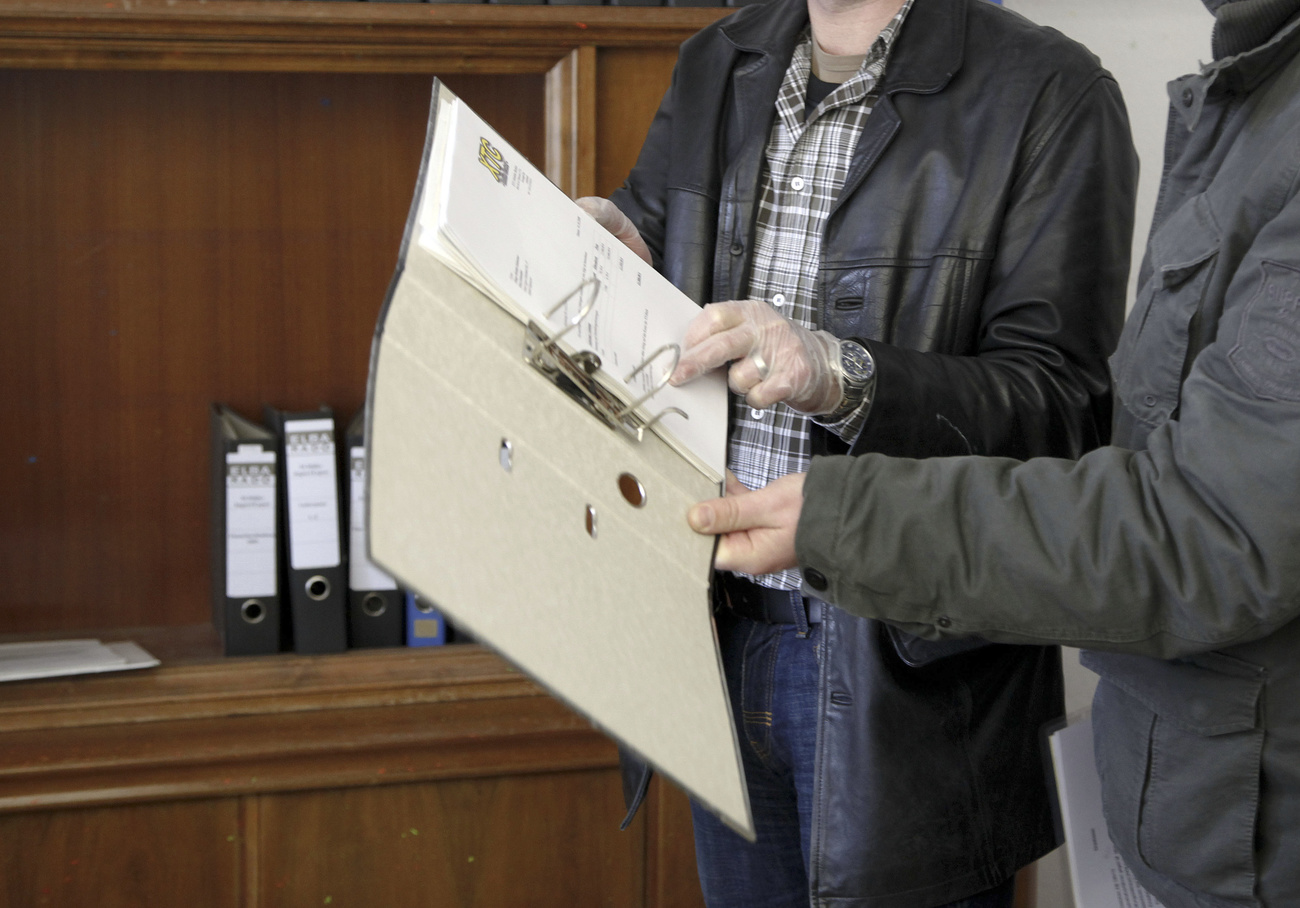
Number of suspected Covid bail-out fraud cases explodes

Switzerland is investigating more than 4,500 cases of suspected abuse by companies claiming emergency bailout loans during the coronavirus pandemic. The number of suspect claims has increased five-fold since late summer and now covers CHF1.2 billion ($1.3 billion).
The latest reportExternal link from the Federal Audit Office (FAO) shows a rise in detected irregularities from 859 at the end of July to 4,646 in October. Most companies are suspected of paying dividends, which is not allowed under the loan terms, or inflating reported turnover to secure a bigger loan.
The suspected bad apples were among more than 130,000 applications for state-backed bridging loans that were reviewed by the FAO. This covered CHF16.4 billion, the lion’s share of loans that were distributed up until the end of July.
Irregularities were therefore detected in 3.5% of applications, but this is not indicative of proven fraud as further checks are being carried out in many cases.
By mid-October some CHF29 million in bridging loans had been written off, as some companies went bust anyway. But another CHF576 million had already been paid back.
The FAO report also stated that CHF7.5 billion has been distributed from state coffers to compensate employees put on short time working. The State Secretariat for Economic Affairs (SECO) has recovered CHF1.1 million and filed six criminal complaints against companies that allegedly fabricated such claims.
This may be just the tip of the iceberg as the FAO and unemployment insurance funds have reported “many hundreds” of cases of suspected abuse to SECO – of which 217 cases are currently subject to detailed scrutiny.
The FAO report, which was issued on Friday, also points to 540 suspicious cases among self-employed people claiming compensation.
“Distributing the money was quick to do but making corrections afterwards is hard work,” the report states. “Nonetheless, this must be done. Mistakes must be corrected, cases of abuse must be pursued – in the spirit of fair and equal treatment, on which taxpayers and recipients must be able to rely.”

In compliance with the JTI standards
More: SWI swissinfo.ch certified by the Journalism Trust Initiative






























You can find an overview of ongoing debates with our journalists here . Please join us!
If you want to start a conversation about a topic raised in this article or want to report factual errors, email us at english@swissinfo.ch.